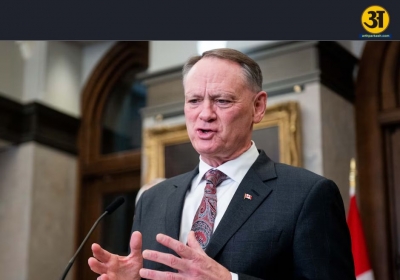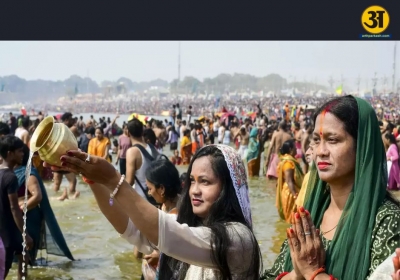
High schools in Karnataka resumed Monday, despite prohibitory orders in Udupi and Bengaluru.
Guidelines to be issued on hijab for schools and colleges
High schools in Karnataka resumed Monday, despite prohibitory orders in Udupi and Bengaluru, after nearly a week of protests and violence. After a high court suggestion banning religious clothes in educational institutions, the administration has chosen to open schools and colleges in stages while the case is still before the court.
Meanwhile, opponents of the hijab ban presented their case in the top court today, claiming that colleges cannot impose such a restriction since they lack legal authority. The matter will be heard again by the high court today at 2.30 p.m. The most important developments are listed here.
First day in Udupi
All high schools that reopened in the Udupi district, the epicenter of pro and anti-hijab protests, saw regular attendance. Muslim girl pupils who reached the school campuses wearing hijabs were asked to remove them before entering classes. There have been no complaints of Hindu students wearing saffron shawls, according to Udupi Tahsildar Pradeep Kurudekar.
To preserve law and order and prevent any untoward incidents, police officers have been stationed in Udupi town and around schools.
Meanwhile, Commerce students in the second Pre-University Course (PUC) at a government high school in Udupi wrote a letter to the school requesting that offline lectures be begun as soon as possible.
The reopening of Pre-University and Degree colleges, on the other hand, will be decided later.
After the students were requested to remove their hijab, or headscarf, before entering the campus, an argument erupted between parents and a teacher outside a Rotary school in Mandya, Karnataka.
According to reports, one of the parents asked the teacher to allow the students to enter the classroom before they removed their headscarves.
Yegathuva Muslim Jamath conducted a demonstration in Coimbatore, Tamil Nadu, in which Muslim women wore tri-color scarves. Manithaneya Jananayaka Katchi organized a rally in Trichy, where Muslim men and women took part, stating that wearing a hijab is a constitutional right.
The Karnataka High Court has resumed hearing the Muslim students' appeal challenging the ban on hijab on college campuses. The government decree stating that wearing hijab is not protected by Article 25 is 'totally erroneous,' according to Advocate Kamat, who represents the petitioners.
Kamat said, "To allow the College Development Committee to decide whether to allow students to wear headscarves or not is totally illegal. The only restriction that can be imposed under Article 25 is public order, which can only be imposed by the state. Can a college development committee consisting of an MLA and some subordinates decide on exercising fundamental freedom? How can a statutory authority be made the guardian of our fundamental rights?"
The hijab issue will be heard by a three-judge bench consisting of Chief Justice of the Karnataka High Court Ritu Raj Awasthi, Justice Krishna S Dixit, and Justice JM Khazi. Students are permitted to attend lessons without religious garb until the case is resolved in court.
New guidelines to be introduced
Based on the proposal of the high court, the Karnataka government is set to impose new guidelines on the use of hijab. According to insiders, the new guidelines will allow children to enter schools wearing hijabs and burqas before changing into uniforms.
School officials stationed outside the school gate urged some pupils to remove their headscarves. The government is going to issue a new set of recommendations to avoid such scenarios.
Based on the high court proposal, Chief Minister Basavaraj Bommai will meet with Education Minister BC Nagesh, education department officials, and home department officials to decide on such guidelines.
All colleges that were closed due to protests over the hijab issue will reopen on February 16th, according to the administration. All Pre-University (PU) colleges and degree colleges will resume on February 16, according to Higher Education Minister BC Nagesh.
After pro- and anti-hijab protests turned violent, authorities in many districts, including Shimoga, Udupi, and Bengaluru, imposed prohibitory measures.
Read more: Managing partner of ghanshyamdas gems jewels charged





